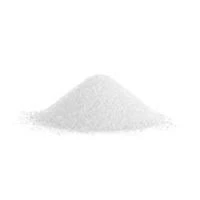
e 410 food additive
Understanding E410 The Food Additive
In our increasingly processed food landscape, food additives play a significant role in enhancing the quality, safety, and shelf-life of products. Among these additives, E410, commonly known as carob bean gum, has gained considerable attention for its multifaceted applications in the food industry. Derived from the seeds of the carob tree (Ceratonia siliqua), E410 is a natural thickening and stabilizing agent that is particularly valued for its unique properties.
Understanding E410 The Food Additive
One of the most remarkable features of carob bean gum is its compatibility with other food additives. It can be easily combined with starches and other gums to enhance its functionalities, allowing food manufacturers to develop products with desirable textures while maintaining a clean label. This is particularly important in today’s market, where consumers increasingly seek products with fewer artificial ingredients. As a result, E410 has gained popularity as a plant-based alternative to synthetic thickeners, appealing to health-conscious individuals and those with dietary restrictions.
e 410 food additive

In addition to its thickening properties, carob bean gum also serves as a fat replacer in low-fat and reduced-calorie products. By mimicking the creamy texture of fats, E410 allows manufacturers to create healthier versions of traditionally high-fat foods without sacrificing taste. This characteristic is especially beneficial in the production of dairy and non-dairy alternatives, where E410 can help maintain a rich mouthfeel that would otherwise be lost when reducing fat content.
E410 is generally regarded as safe for consumption and is approved for use in many countries, including those in the European Union and the United States. However, like all food additives, it should be consumed in moderation. Some individuals may experience gastrointestinal discomfort if they consume large quantities, as it is a soluble fiber. As with any food additive, it is essential for consumers to be aware of their own health conditions and dietary needs.
The versatility of E410 extends beyond food products. Its thickening and stabilizing properties have made it a popular additive in cosmetics, pharmaceuticals, and personal care products. In these industries, carob bean gum is utilized to improve texture, enhance skin feel, and stabilize formulations, showcasing its multifunctional capabilities.
In conclusion, E410, or carob bean gum, is an exceptional food additive that contributes significantly to the quality of many products we consume. Its ability to enhance texture, serve as a fat replacer, and work synergistically with other ingredients makes it a valuable component in both food and non-food applications. As consumers continue to seek healthier and more natural options, the role of E410 in the food industry is likely to grow, solidifying its place as a staple in the world of food additives. By understanding its benefits and applications, we can make informed choices about the products we consume and appreciate the science behind our food.
-
nitrile-rubber-honoring-strict-production-standardsNewsAug.22,2025
-
aspartame-ingredients-honoring-food-safety-valuesNewsAug.22,2025
-
fertilizer-for-balanced-plant-nutritionNewsAug.22,2025
-
cyanide-gold-processing-with-high-purity-additivesNewsAug.22,2025
-
formic-acid-in-textile-dyeing-applicationsNewsAug.22,2025
-
aluminum-hydroxide-gel-in-skincare-productsNewsAug.22,2025
-
Regulatory Compliance for Global Mining Chemicals UseNewsAug.12,2025
Hebei Tenger Chemical Technology Co., Ltd. focuses on the chemical industry and is committed to the export service of chemical raw materials.
-

view more DiethanolisopropanolamineIn the ever-growing field of chemical solutions, diethanolisopropanolamine (DEIPA) stands out as a versatile and important compound. Due to its unique chemical structure and properties, DEIPA is of interest to various industries including construction, personal care, and agriculture. -

view more TriisopropanolamineTriisopropanolamine (TIPA) alkanol amine substance, is a kind of alcohol amine compound with amino and alcohol hydroxyl, and because of its molecules contains both amino and hydroxyl. -

view more Tetramethyl Thiuram DisulfideTetramethyl thiuram disulfide, also known as TMTD, is a white to light-yellow powder with a distinct sulfur-like odor. It is soluble in organic solvents such as benzene, acetone, and ethyl acetate, making it highly versatile for use in different formulations. TMTD is known for its excellent vulcanization acceleration properties, which makes it a key ingredient in the production of rubber products. Additionally, it acts as an effective fungicide and bactericide, making it valuable in agricultural applications. Its high purity and stability ensure consistent performance, making it a preferred choice for manufacturers across various industries.





